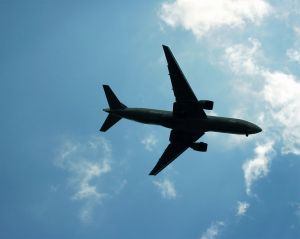Travel News
Major Airlines Announce Revenue-Sharing Alliances
Major Airlines Announce Revenue-Sharing Alliances
 Major airlines in the United States, Canada and Japan
Major airlines in the United States, Canada and Japanannounced their plans to participate in joint ventures and coordinate operations
on Thursday.
This morning Air Canada and United Continental Holdings announced that the
airlines would start a revenue-sharing joint venture for flights between the
United States and Canada.
The deal, which is to go into effect early next year, would deepen the financial
ties between the two countries and boost the cities they serve.
Air Canada and United Continental already have been granted antitrust immunity
by the U.S. Department of Transportation (DOT) and are able to sell tickets on
each others’ flights.
The new deal would double the Air Canada reach in the United States from 59 U.S.
cities to 210 cities. For United, the airline would go from serving 16 Canadian
cities to 59 locations in Canada.
The enhanced partnership still needs to be approved by regulatory agencies in
both countries before it can go forward. According to the airlines’ brass, the
partnership would create a more streamlined travel experience for customers and
w ould serve customers by offering more travel options and
ould serve customers by offering more travel options and
bigger savings.
The joint venture will be a joining of two North American aviation powerhouses.
Air Canada is Canada’s largest airlines, while United Continental Holdings is
the largest airline in the world.
Meanwhile, across the Pacific, four major American and Japanese airlines were
granted antitrust immunity by the DOT, allowing them to form partnerships on
flights to Asian and the United States.
The DOT approved two separate alliances: one between American and Japan Air, and
one between United Continental Holdings and All Nippon Airways.
According to a statement by the agency, the alliances would improve competition,
lower fares and increase scheduling options for transpacific passengers.
The approved deals would allow
deals would allow
American and Japan Air as part of the Oneworld alliance to cooperate on pricing,
routes and marketing for overseas flights.
The deals would also allow the rival Star Alliance to do the same with United
Continental Holdings and All Nippon Airways flights.
Part of the approval of the requests were influenced by pressures from the
Japanese government to pass the deals in exchange for Japan’s participation in
an Open Skies treaty with the United States.
In December of last year, the two countries agreed to enter an Open Skies
aviation relationship in which airlines from both countries would be allowed to
select routes and destinations based on consumer demand. The treaty would apply
to passenger and cargo services, and there would be no limits on the number of
American or Japanese carriers that could fly between the two countries. The
number of flights would also not be restricted under the treaty.
The DOT’s approval of the transpacific deals are tentative, but will be put into
affect once the Open Skies aviation agreement is signed by Japan.
By Adriana Padilla for PeterGreenberg.com.
Related Links:
Related Links on PeterGreenberg.com:












